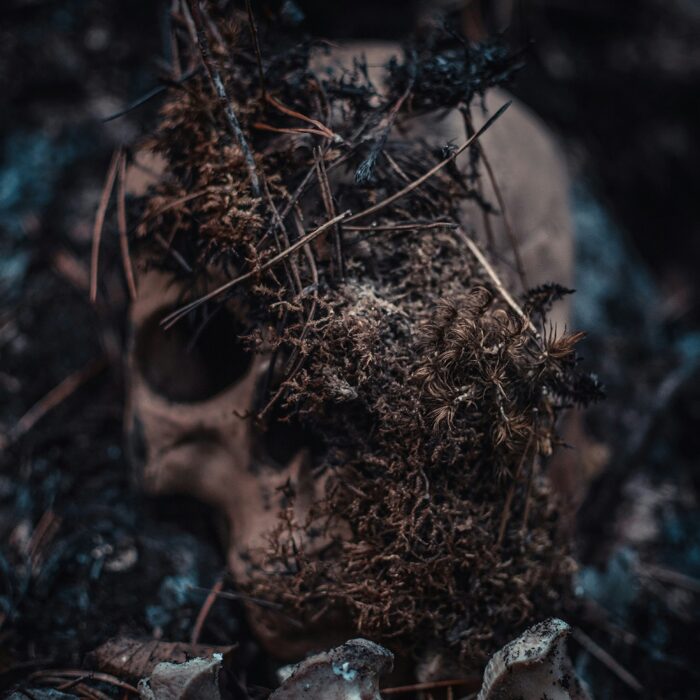You have no items in your cart. Want to get some nice things?
Go shopping
She’d driven all the way from Phoenix to join this cult we have in town. A cult based around nature spirits and vortexes and handing over large amounts of your life savings. From her note, it was pretty clear she was in need of answers that no one was willing to give her, least of all herself. In her rental Kia, she left behind her bejeweled iPhone, a pack of Watermelon Bubble Yum, and two suicide notes – one private, one public. Oddly, they were very similar, both written in fluorescent pink ink, with one exception: the public note blamed herself and the private note blamed no one.
At our current rate, Bainbrink, Watson, and I would pull a body from the river almost every three months, and then we’d have to haul it back up the trail. Two bodies ago, when Deputy Watson slipped and fell, we almost lost that corpse down the ravine. Bainbrink caught it at the last second, landing hard in a creosote bush, clutching onto the body’s flailing leg. Meanwhile, Watson puked from exhaustion and horror. Luckily, that body didn’t weigh too much.
The walk down the side of the Gorge was always treacherous. It took my deputies and I approximately two hours on the switchback trail – and we always struggled with it. One of these days, I swear to God, one of us’ll slip and get killed if a rattlesnake doesn’t do us in first.
An argument can be made, and often has, that the fence we have on the Rio Grande Gorge Bridge doesn’t do enough – that it’s part of what makes the bridge one of the top suicide destinations in the world. It’s no taller than the marker to ride an amusement park roller-coaster. In fact, people have been trying to get a new barrier up for years, even a translucent mesh screen that curves inwards, but it’s been caught up in what I like to call “the bureaucrazy.”
#
His body had started to fail him in recent months, and some lower-back issues got the ball rolling on his troubles – or so we heard. Recently laid-off, he had little going for him except beer-o’clock and a slew of trespassing charges. Left no note behind, but from what his wife said, theirs was already a dying marriage and she was getting ready to pull the plug, vows-wise.
Fishing his body out of the ravine was tougher than most. He was a former all-state linebacker for the University of New Mexico. 6’5”, 290. We almost had to call in the helicopter to airlift him out. But the three of us – we managed to get him up the hill in just under three hours. By then, we were dehydrated, dog-tired and seeing heat ghosts. I gave Bainbrink and Watson the rest of the day off. Said I’d take care of the paperwork. Go home and be with your wives, I told ’em. And they did.
What I’ve learned doing this gig is that the world will always show you your breaking points. You meet people tempted by their own darkness, willing to call the world’s bluff.
But I gotta say, the days out here are gettin’ tougher and tougher.
#
Esmeralda served in the second Iraq war. She lost her hearing in her left ear from a roadside bomb. She was now 34.
Back in her high school days, all the local kids on the football team lusted after her. A couple of the cops on the force had sons who played – and all I heard for four goddamn summers straight was about their kids’ broken hearts. A tough-as-shit, stone-cold heartbreaker, they’d say. But she had something ethereal, even ghostly about her. She was heroin to these guys. From the way some of these cops talked – especially the divorced ones – I could tell they were about two beers and one jukebox song away from trying to run off with Esmeralda themselves, if only they could talk her into it.
During her senior year at Taos High, Esmeralda almost did run off – with a local community college philosopher professor. Instead, she went to Minnesota and represented New Mexico at a national beauty contest, placing 12th. Because she grew up fascinated with biology and the hard sciences, she gave an incredible speech to the judges about DNA modification. Her answer had been covered by the national press, even commented on by two Nobel Laureates. It was as though the world was stunned – stunned – that a woman of such beauty could be capable of that kind of thought. But it wasn’t a surprise to anyone who’s lived for any period of time.
After her beauty-queen career fizzled, she spent her days working as a service-department secretary at a Dodge dealership five miles from home. That’s where she met a recruiter for the Army and somehow ended up enlisting. Her parents were initially scared and discouraging but became supportive when they saw that Esmeralda wasn’t swayed by their fears. She always ran with her own crowd, even if it was just a crowd of one.
When she shipped off to Iraq in a massive aircraft carrier out of the Gulf of Mexico, her mother cried the entire night before, but was still the first person up at five a.m to help her daughter pack her stuff.
Ten months later, when Esmeralda returned from overseas, she wasn’t making much sense. She went into therapy; she started taking some meds – they were supposed to help with the PTSD. Her family loved her, and she was making some comforting noises about settling down and starting a family, but something inside Esmeralda that had started shaking back in the Middle East wouldn’t stop. There was an earthquake inside at all times.
When my deputy, Bainbrink, pulled her body out of the Rio Grande, my heart skipped a beat. I remembered getting a call to a downtown dive bar a few weeks before, because a wasted Esmeralda had started breaking things in the bar. After walking her out to curb and calming her down, she wiped her mascara and started talking to me about how she wished she was 19 again – how she wished she’d run off with that philosophy professor – all those wide-open spaces before her in life. She said she regretted serving her country, and I told her she shouldn’t. If only she’d told that Army Recruiter off that day, she said. If only she’d been meaner. If only she hadn’t felt the need to be patriotic. All these thoughts she was having – the ones that kept rattling around in her brain – kept chipping away at her psyche until she couldn’t stand it.
I told her she needed to stay in therapy, and she promised she would. But she was scared to take any more meds, claiming they made her feel disconnected from herself.
“Alcohol’s the oldest medication there is, Armando,” she said – a bit of that young, self-assured Esmeralda emerging again, if only momentarily. “It’s been around since the Romans, the Greeks, the pre-whatever’s.” She smiled wanly. “I think I should switch to that, honestly.”
Then she was quiet for a long time while I listened to her blow her nose. And quite loudly, for a girl her size.
When we pulled her body out of the ravine, she was unrecognizable.
#
He was in his late 60s. A renowned artist and author. A seer. Some said he was a gifted channeler of the divine. People came from all over to see Albee. I’d always thought he was some kind of kook, but then he proved himself to me beyond a reasonable doubt one day.
I pulled him over for a speeding ticket, and the next thing you know, he’s gesturing fiercely from within his puffy turquoise jacket, giving me messages from my long-dead abuelita. Now, I don’t normally let people off for speeding tickets, but he was rushing to deal with a client who had a “haunting problem.” Albee said it was time-sensitive, and I believed him. That’s when I realized our jobs weren’t all that different: we both tried to save desperate people in tough circumstances. I just carried a gun and badge and the weight of too many people’s mistakes; he did it with a stick of sage, a sound bowl, and some strange-looking crystals. And I’ll be honest – there’s only two times in life when I’d allow a speeding ticket to slide: if a woman’s in labor and when a guy tells you accurate things about your long-dead grandma.
He told me that the spirit world was keen on me. And why was that? I asked. He told me about the needlepoint pillow my grandmother sewed for me, with the exact message on the back. He told me that my spirit guides saw all the people I was saving from premature exit points, and that I was undoing some karma from a previous life where I’d killed a lot of people in Scandinavia.
Well, okay then.
According to Albee, my grandmother’s main message was that I needed to keep my focus on my fiancée, Beth, because she was having a hard time. Something she wasn’t sharing with me. Something physical, in her bones. Could get worse if she didn’t get it checked out soon.
I considered that information, thanked Albee, and sent him on his way. He sped off, pretty much at the same speed I’d pulled him over for. I just turned and looked at the Sangre de Cristo foothills in the distance, shook my head, and walked back to my squad car.
A couple hours later, when I got the call from Bainbrink that an older man in a turquoise jacket was seen jumping from the bridge, I thought: No way. Couldn’t be. But it was.
A few days after the funeral, I paid Albee’s “haunted” client a visit. Beloved by the community, Albee hadn’t left a suicide note and had no known family in the area – just a brother who lived overseas – and no one seemed to know how to reach him. But he’d formed a connection with this client, almost like a family member would.
“He really helped me that night,” said the young lady who answered the door. “My house had been haunted for months, and my six-year-old son was constantly being terrorized.” She scratched her arms, a bone-cutting desert chill whipping through her screen door. “I’m very sad for what happened, but whatever Albee did, he saved my son. And that’s a gift I can never repay him for.” She paused, pursing her lips, trying to make sense of the tragedy. “Maybe he took whatever was messing with this house – and he took it over the edge of that bridge – ’cause he couldn’t carry it anymore. I don’t know. I really don’t know, Officer.”
On the way back to my car, I noticed a tiny piece of New Mexico sage caught under my windshield wiper.
#
I got a dispatch of a youth in cargo shorts and a Green Bay Packers windbreaker roaming the bridge at midnight on a Thursday night in March. Most people don’t go sightseeing at that time, so I drove out and found a skinny teenager – maybe about 16 – sitting on the curb, his knees pulled up to his chest right under his windbreaker. He resembled a friend of a friend from when I grew up in Nogales – but he was lankier, and more skittish. I asked him to tell me what was bothering him.
“I gotta kill myself,” he muttered.
“No, you don’t,” I said. “You might want to, but no problem’s worth dying for.”
“I’m never gonna fix all my problems,” he replied. “I have so many.”
“Everybody does.” Then I tried to lighten the mood: “Hey, you should see my garage. It’s gonna take three generations just to clean that out.” The young man didn’t smile. “But that’s okay,” I continued, “You know why?”
“No,” said the young man.
“Some problems, if we’re lucky, solve themselves.”
The young man rubbed a scab on his left knee. Then he got up, turned, and jumped over the railing.
It’s a strange feeling, that gap between when you know something is salvageable and when you know something isn’t. It might only last a second or two, but you can play it back in your mind like a movie with a tragic ending – something you’ve seen dozens of times – and you’re still tricked into thinking this time it’ll turn out different. And when it doesn’t, you can’t believe you ever thought it would.
#
Bainbrink wasn’t sleeping.
He had a new baby. A new wife.
Maybe it was the toll of doing this job.
Maybe it was the loss of his brother last year to cancer.
Maybe it was his mounting debt.
I don’t really know because we never really got into those things.
Before he jumped, he went to the drive-thru and bought two Happy Meals from McDonald’s.
He left his wedding ring on the dash, along with two college football rings.
He left a note, apologizing.
I should’ve seen it coming – but I didn’t.
#
The last body is the guy I’m looking at in the ravine right now.
But first, a story.
Back in 1937, a young woman named Myrtle Ward lost her job at a downtown L.A. cafeteria. She feared for the future of the world during the Great Depression, so she took her three-year-old daughter out to the Colorado Street Bridge in nearby Pasadena, and just before nine a.m., ignoring the screams of two nearby witnesses, tossed her daughter Jean over the railing, and then jumped herself – 150 feet down into the Arroyo Seco.
Myrtle Ward died. But three-year-old Jean, a note pinned to her coat, didn’t.
Supposedly, the branches of some nearby trees had broken the young girl’s fall, and she was found – crying, calling out for her mother – as she screamed in the dirt.
Since 1912, 154 people have jumped from the Colorado Street Bridge. Three-year-old Jean Ward is the only one to ever survive the fall.
The Bible says, “In my Father’s house, there are many mansions.“ I always liked that quote and mostly have no idea what it means, but I’m starting to grasp that maybe God works in ways that I don’t fully understand.
I’m looking down into the Rio Grande’s rushing waters, 630 feet below. I’m thinking about how my fiancée decided to end our engagement this morning. She gave me the ring back and drove to her sister’s in El Paso. Maybe it was when she got her diagnosis, when she found out she was going to live. Maybe that gave her permission to run free. Or maybe she wasn’t ready to be hitched to a guy whose job it was to be the Grim Reaper’s janitor.
I’m guessing she thought I’d eventually go the way of Bainbrink. That ultimately the undertow would pull me down too, and she didn’t want to be around for it. Or maybe it was because I wasn’t there for her, being I was too busy not saving people from killing themselves.
Now that I’m standing here, looking down into the cold waters of oblivion, I’m wondering whether it was even worth it. Because people are going to do what they’re going to do, whenever the hell they’re going to do it.
I guess I’m just a suicide victim of a different sort.
Underneath my frozen fists, someone had written the world “JUMP” in black sharpie across the white, far-too-short metal bridge railing. I stood there, looking down, gripping hard onto the only thing still keeping me here. I peered down into the gorge and I saw my own body lying at the bottom of the ravine.
But after a long moment, I blinked, and the body was gone.
I turned and eyed the Sangre de Cristo Mountains to the east. The snow was beginning its yearly melt, and the river would run high this year.

About Noah Pohl
An emerging writer originally from New England, Noah Pohl earned a BA in Literary Arts from Brown University. A finalist for the Nancy D. Hargrove Editors' Prize in Fiction, his work is forthcoming in The Jabberwock Review.




